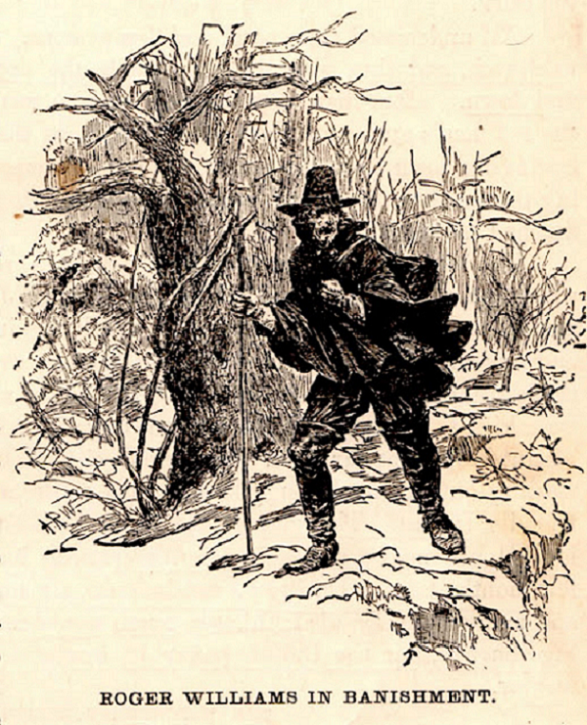NightWatch Podcast EPISODE 51: BUNGLED CHANCES PART 11 – WINDOW INTO THE PAST: 6 MIN.

The whole point of these twelve episodes under the title of “Bungled Chances,” is to make the comparison between my own personal experience of twelve years in the “Cutting Edge” “Shepherding Movement” to the Puritan years of the late 1600’s in Boston Massachusetts.
The Puritans are said to have landed on the shore of Massachusetts Bay on June 13, 1630. The story of John Winthrop’s “Model of Christian Charity” message, also known as the “City on a Hill” speech, offers three different alternatives as to when and where the speech was delivered. Some say it was delivered on March 21, 1630 at Holyrood Church in Southampton, Great Britain prior to the Puritan departure for the New World. Some say it was preached on the ship Arbella while crossing the Atlantic. Still others report that John delivered his message standing on the deck of the Arbella, docked at the shore of Massachusetts Bay on June 13, 1630.
It is clear that the Puritan’s goal for their New World venture was to establish a Biblically-centered stronghold on this piece of Massachusetts Bay real estate from which their theological belief system could take root and become the “City on a Hill” as laid out by John Winthrop, their vision-caster.
But like our “Cutting Edge” “Shepherding Movement,” the Puritans allowed virtually no flexibility in the belief system of their community. Many with varying interpretations of Scripture were banished and/or excommunicated from their Puritan community. The most well known victims of Puritan immutability are the Quakers who were outright banned and threatened with the death penalty should they not vacate the Puritan community. Four Quakers, known as the Boston Martyrs, were executed for their failure to renounce their Quaker beliefs or leave Boston. Among them was Mary Dyer, who came to Boston as a Puritan but converted to the Quaker faith and refused to leave or back down in her beliefs.
Rev. Roger Williams was a Puritan minister who opposed the policy of civil courts handing out judgments with respect to religious matters. He also challenged both the Pilgrim and Puritan settlers to make fair payments to the local native tribes whose land, he claimed, was being occupied without fair remuneration. He was banished from the colony and relocated to Rhode Island where he founded the Baptist Church and became their pastor.
And finally, Ann Hutchinson, a strong-minded Puritan who was born and raised in Great Britain, moved to Boston in 1634 and became a powerful influence in the Puritan community, teaching mostly women from the Holy Scriptures. She was challenged by Puritan pastors who said she was not qualified or authorized to teach. She refused to step down from her ministry and was banished. She moved her family to Rhode Island and became a part of Roger Williams’ congregation.
The “Shepherding Movement” did not excommunicate, banish or execute (of course) any member of the church. But they did create an environment that made it difficult to think for one’s self. Peer pressure has its power. The Puritans believed that they were on the “Cutting Edge” and so did we. In some form or another, history does repeat itself.
CLICK HERE FOR EPISODE NO. 52: WALK ABOUT ZION

 19. Jan, 2023
19. Jan, 2023 








No comments yet... Be the first to leave a reply!